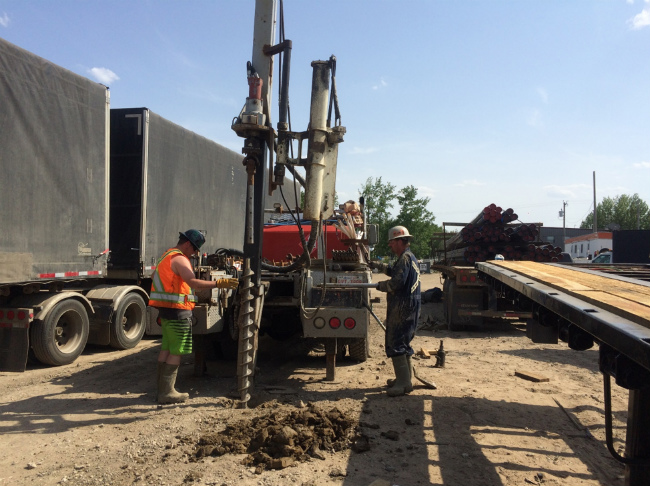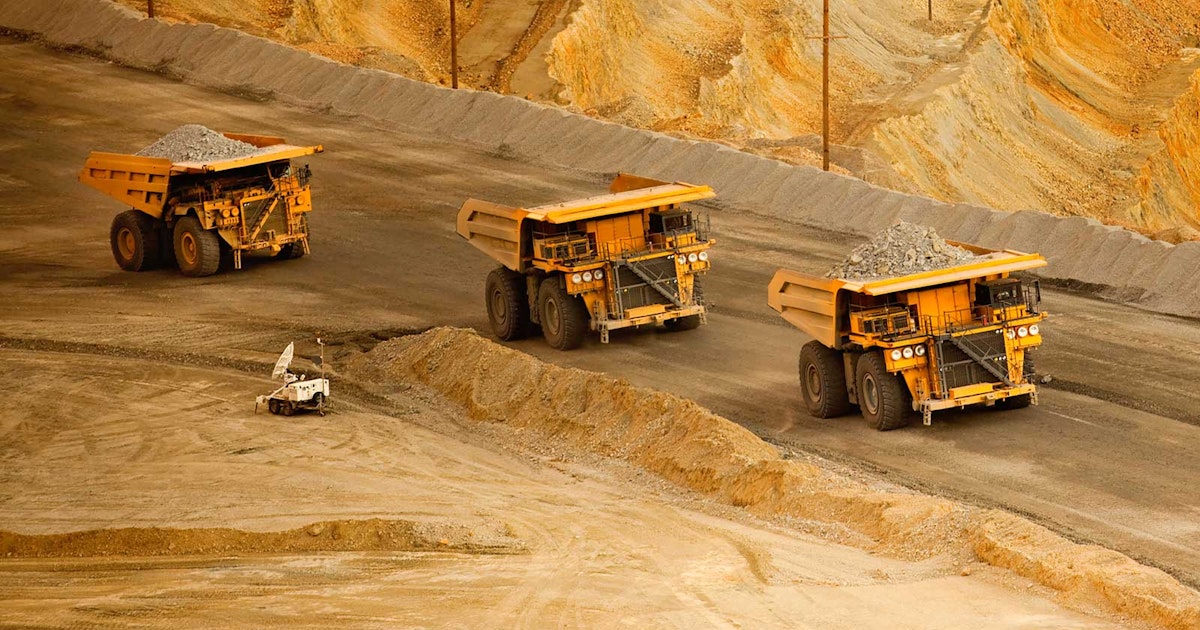Leading Geotechnical Companies in South Africa: Who You Must Know
Leading Geotechnical Companies in South Africa: Who You Must Know
Blog Article
The Value of Geotechnical Design in Resolving Ecological Obstacles and Enhancing Building And Construction Safety And Security
Geotechnical engineering serves as a cornerstone in the intersection of ecological stewardship and building and construction safety and security, giving essential understandings right into the habits of soil and rock under various problems. This technique not just addresses pressing environmental challenges such as dirt disintegration and groundwater security but additionally boosts the toughness of framework versus natural hazards. By implementing strategic website investigations and tailored reduction procedures, geotechnical engineers play a vital duty in securing both human lives and ecological integrity. Yet, the intricacies of these difficulties raise vital concerns about the future direction of this area and its ramifications for lasting advancement.

Function of Geotechnical Engineering
Geotechnical engineering plays a crucial role in the design and construction of infrastructure by addressing the actions of dirt and rock products under numerous conditions. This field of engineering is essential for understanding the communication in between structures and the ground, that includes identifying the load-bearing capacity of dirt, examining stability, and predicting potential settlement or failing.
Geotechnical engineers are accountable for conducting website examinations, which involve tasting and screening soil and rock to collect information on their physical and chemical residential or commercial properties. This information is important for designing structures, keeping wall surfaces, and various other earth-retaining frameworks that guarantee safety and long life. Geotechnical design notifies the option of suitable building and construction techniques and products, thus decreasing risks linked with soil habits.
Moreover, the combination of geotechnical design principles right into urban planning and ecological management is vital for addressing difficulties such as ground contamination and groundwater monitoring. By comprehending geotechnical variables, engineers can establish lasting remedies that enhance the durability of framework against natural threats, while also promoting ecological stewardship. Inevitably, the role of geotechnical engineering is vital for attaining safe, resilient, and ecologically aware construction practices.
Soil Erosion Mitigation
Dirt disintegration poses a significant danger to both ecological stability and infrastructure stability, influencing approximately 24 billion lots of abundant dirt shed each year worldwide. This phenomenon is intensified by aspects such as logging, urbanization, and inadequate farming practices. Geotechnical engineering plays a critical role in establishing efficient dirt disintegration reduction strategies that safeguard both the environment and building and construction tasks.
One technique requires the application of disintegration control techniques such as greenery planting, which stabilizes dirt via origin systems. Furthermore, the building of keeping walls and terraces can successfully decrease surface runoff and shield at risk locations from erosion. Proper water drainage layout is additionally vital; it lessens water accumulation and directs excess drainage far from important structures.
Furthermore, geotechnical engineers employ dirt stabilization techniques, such as the application of geotextiles and biodegradable floor coverings, to improve soil communication and protect against deterioration - all about geotechnical engineering. Routine monitoring and analysis of erosion-prone sites make it possible for timely treatments, ensuring lasting sustainability. By incorporating these methods, geotechnical engineering not just alleviates the impacts of soil disintegration however additionally adds to the strength of facilities versus environmental obstacles, eventually cultivating a safer and extra sustainable developed environment
Groundwater Security Strategies
Groundwater acts as a vital source for alcohol consumption water, agriculture, and commercial procedures, making its protection crucial for environmental sustainability and public wellness. Reliable groundwater protection methods are crucial in alleviating contamination threats and guaranteeing the durability of this source.

Normal tracking of groundwater top quality is likewise important, enabling very early discovery of contamination resources and facilitating prompt remediation initiatives. Utilizing innovative modern technologies, such as geophysical surveys and remote picking up, aids in recognizing prospective threats to groundwater books.
Additionally, public education and stakeholder interaction are essential, promoting community support for groundwater defense efforts. geotechnical engineer description. By incorporating regulatory procedures, technical developments, and area involvement, we can produce a thorough structure that safeguards groundwater resources while promoting lasting development and building techniques
Landslide Risk Administration
Landslides posture significant hazards to both human security and facilities, making reliable risk management methods essential. Geotechnical engineering plays a critical role in identifying, analyzing, and mitigating landslide risks. A detailed understanding of incline security, soil technicians, and hydrology is vital for developing effective risk administration plans.
The very first step in landslide risk management involves extensive site investigations, that include geological mapping and soil testing. These examinations help designers review the capacity for landslides by recognizing crucial aspects such as slope angles, soil structure, and water content. Utilizing advanced technologies such as remote noticing and geophysical studies can boost the precision of these analyses.
When dangers are identified, ideal mitigation steps can be executed. These may consist of design services such as keeping wall surfaces, drain systems, and slope stablizing strategies. Moreover, keeping an eye on systems must be established to spot indicators of ground motion and changes in water degrees, permitting positive treatments.

Enhancing Building Security
Building sites typically provide a myriad of dangers that can endanger worker security and job integrity. Geotechnical engineering plays a crucial role browse around this web-site in enhancing construction safety and security by giving crucial understandings right into subsurface conditions. Through comprehensive soil and rock evaluation, geotechnical designers can determine potential risks, such as soil browse around this site instability, groundwater problems, and seismic vulnerabilities, which may endanger the safety and security of building activities.
Implementing geotechnical solutions, such as correct foundation design and using maintaining structures, minimizes these dangers considerably. These solutions not only guarantee the stability of the frameworks being developed but additionally produce a safer working setting for building personnel. In addition, extensive surveillance and evaluation of site problems throughout the construction procedure are important. Utilizing sophisticated technologies like ground-penetrating radar and inclinometer systems makes it possible for real-time data collection, enabling timely treatments when risks are detected.
Additionally, cultivating a society of safety through training and adherence to established security procedures additionally boosts building and construction website safety and security. By incorporating geotechnical knowledge into the planning and execution phases, building jobs can attain greater security criteria, ultimately protecting employees and guaranteeing successful job completion.
Conclusion
In conclusion, geotechnical design serves as a critical technique in dealing with ecological difficulties and promoting building and construction security. Via effective soil disintegration mitigation, groundwater defense techniques, and landslide threat administration, geotechnical designers contribute to the growth of resilient framework.
Geotechnical engineering serves as a keystone in the intersection of ecological stewardship and construction security, providing essential insights right into the actions of soil more helpful hints and rock under different problems. Geotechnical engineering notifies the option of suitable building approaches and materials, consequently decreasing risks connected with dirt actions.
Geotechnical engineering plays an essential duty in developing effective soil disintegration reduction strategies that protect both the atmosphere and building and construction tasks.
Furthermore, geotechnical engineers utilize dirt stablizing strategies, such as the application of geotextiles and biodegradable mats, to improve soil communication and protect against degradation. Through extensive soil and rock analysis, geotechnical engineers can determine prospective threats, such as dirt instability, groundwater concerns, and seismic susceptabilities, which might endanger the safety and security of construction activities.
Report this page